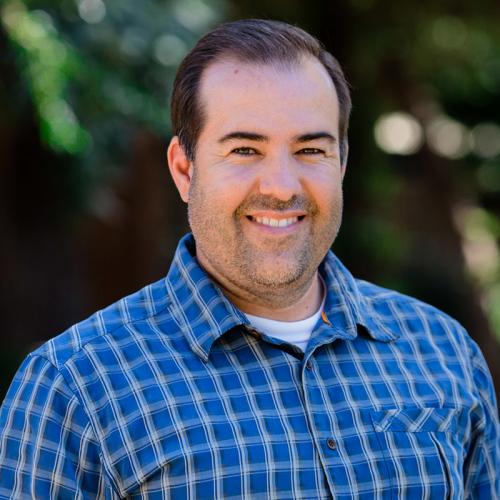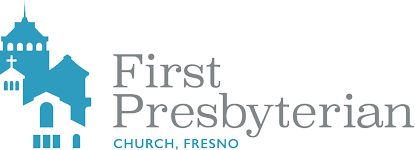Jay Pope.jpg

By Jay Pope
There are 24 Syrian refugee families currently living in Fresno with many more likely on the way. Most of these families have many children, meaning that there are at least 150 Syrian refugees in our community at this time. This does not include several more individuals and families who are asylum seekers and cannot return to Syria for obvious reasons. Oftentimes, asylum seekers are more adaptable to living in the United States because they are generally more educated and have often lived internationally before (e.g., working in Saudi Arabia, the United Arab Emirates, or in Europe); however, their legal status is generally more difficult because they have not gone through the normal paths to citizenship and vetting processes that refugees have. Therefore, finding work for all Syrians in our midst is a challenge.
Most of the families are traumatized, some of them severely so. They have lost their homes, almost all of their possessions, and have numerous health concerns--some of which pertain to severe injuries sustained as civilians in the Syrian Civil War. They are all in severe financial duress, having arrived to the United States penniless and heavily indebted because of the expensive airline tickets which were obtained via loan that must be repaid within the next few years. They are currently living in conditions in Fresno that are, frankly, embarrassing to our community. They simply must be given better options than living in moldy, overcrowded, deteriorating, and dangerous apartments managed by people with little interest in their welfare. On a long list of needs, we have identified "vastly improved housing" as their primary short term need. Each family gets approximately $400.00/month for housing, but it is crucial that we raise funds to help subsidize the rest of that amount and find ways to get the families (especially the larger ones) into more spacious rentals.
There are also needs for cars, household items, groceries, diapers, furniture, clothing (especially children's), cleaning supplies (laundry detergent, soap, wipes, etc.). Many people in the community have stepped up tremendously, including a group of women at First Pres, who have been able to pool resources and run errands for them. Women in particular are needed to help, because the Syrian mothers often need to grocery shopping, but they do not have cars and they cannot travel alone with a male.
The majority of families are (certainly culturally) Sunni Muslim, which means that the partnership with Fresno Interdenomination Refugee Ministry, Woven Community Church, Islamic Cultural Center, and Masjid Fresno is a major win for interfaith cooperation. Fresno has a lot to be proud of in this area, even if there is some ongoing needed sensitivity here.
Note from Terry Jaurena: If you are interested in assisting with the needs discussed here, please contact FIRM.
A few remaining issues.
(1) Trust is very important in the community and the relationships that have been built thus far have taken some time and finesse. Until you get to know the families more and they have adjusted somewhat to their new community, it is strongly advised to not simply show up to their apartments without an introduction. In addition to being traumatized, most of the families are from more rural, traditional areas in Syria and even a moderately sized city like Fresno feels overwhelming for them. They are all very friendly and hospitable but they are understandably wary.
(2) A few cultural reminders, should you interact with any of our new friends:
(a) Shaking hands with Muslim man is fine, but if you are a man, it is typically not advised to extend a hand in greeting a Muslim woman. Wait for them to extend or better yet just place your hand over your heart and give a warm smile. That coveys your genuine care and regard. If your first visit goes well enough, you may graduate to doing the French style "air smooching on alternating cheeks" on your second visit (note: same sex only!).
(b) When taking food at a buffet or eating, use your right hand only.
(c) Take off your shoes when entering a Muslim house, even if they insist that you forego this formality.
(d) Never show the bottom of your feet (i.e., cross you legs like men often do) when seated.
(e) The best way to connect Muslims and Arabs is through children. Every accommodation for children will be made and it is expected that you will be as playful, tender, and affectionate with their kids as you would with your friends' kids. They will love it.
(f) Do not overly admire something that they possess or they will feel obligated to give it to you. (g) Do not finish everything on your plate unless you want more. You will be offered more and more and more each time you do--always with a friendly insistence that can only be described as "impossible to resist."
(h) No matter how informal the gathering, they will always put some sort of food/treat/coffee before you.
(i) No matter how informal the gathering, always bring something as a gift. Chocolate always does the trick.
(j) Even in the hottest summer weather, do not wear shorts in their homes. Muslim and Arab women and men (yes, even the men) are typically much more modest about their bodies. Showing leg is considered far too informal and perhaps a bit too effeminate for men. (k) If you are driving them to go grocery shopping, remember that pork is off limits and, if possible, try to procure "halal" meats from a market. There are several halal markets in town. It will also help to become familiar with the places in town that sell grape leaves.
(l) Do not say "you should do this" or "you should do that" as a recommendation unless you mean it 100%, because they will take you literally.
(m) Try to avoid saying "no" directly to a request; if you are asked to come over for a dessert that you cannot attend, put your hand over your heart and say, with a disappointed-sounding voice "in-shallah" (literally, "if God wills it"; which is a nice way to say no in addition to it being a near-universal Arabic expression of any event in the future--"tomorrow will be a pretty day, in-shallah"). It is also okay to say that it would be difficult to do something instead of saying a direct "no."
(3) There is also a need for volunteer services, such as tutoring, driving instruction, help with moving, and ESL. (Again, your best point of contact is FIRM)
(4) The men are generally able to do any number of handyman, construction type jobs and all are looking for work. When I asked them what they did for a living in Syria they said "anything."

